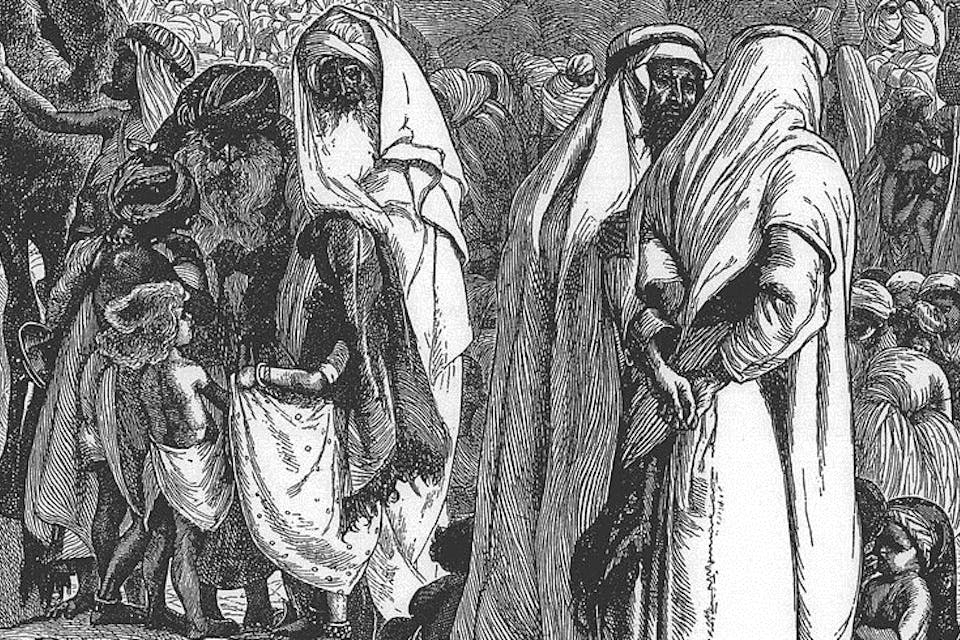
July 16, 2015
Were Reuben and Gad Right to Ask Moses for Land on the Other Side of the Jordan?
Wherever Jews live, God lives within them.
The question at the heart of this week’s double reading of Matot-Masey (Numbers 30:2 – 36:13) strikes at the heart of what the Torah as a whole is actually about. At the very beginning of Genesis, Rashi opens his magisterial commentary with this hypothesis:
Rabbi Yitzḥak said: The Torah didn’t need to start other than with “This month shall be [your first month]” (Exodus 12:1), which is the first commandment the Israelites were commanded. Why then does it begin with “In the beginning”? This is because it says in Psalms (111:6): “He declared the power of His works to His people in order to give to them the inheritance of nations.” Thus, should the nations of the world say to Israel, “You are robbers, for you have taken by force the lands of the Seven Nations [of Canaan],” they shall say to them: “All the earth belongs to God. He created it and gave it to whomever He saw fit. It was His will to give it to them and it was His will to take it from them and give it to us.”
Rashi’s hypothesis would make sense if the conquest of the land of Israel actually took place in the course of the first book of the Torah, or the second, or the third. But it does not take place in any of the five books of the Torah, whose narrative breaks off with the Israelites on the eastern side of the Jordan, leaving the messy business of conquest to the book of Joshua. And even that book, as my teacher Rabbi Hezi Cohen pointed out, contains fewer than 100 verses on the subject of warfare, being much more concerned with the problem of ethics and power once you’re in your own land.